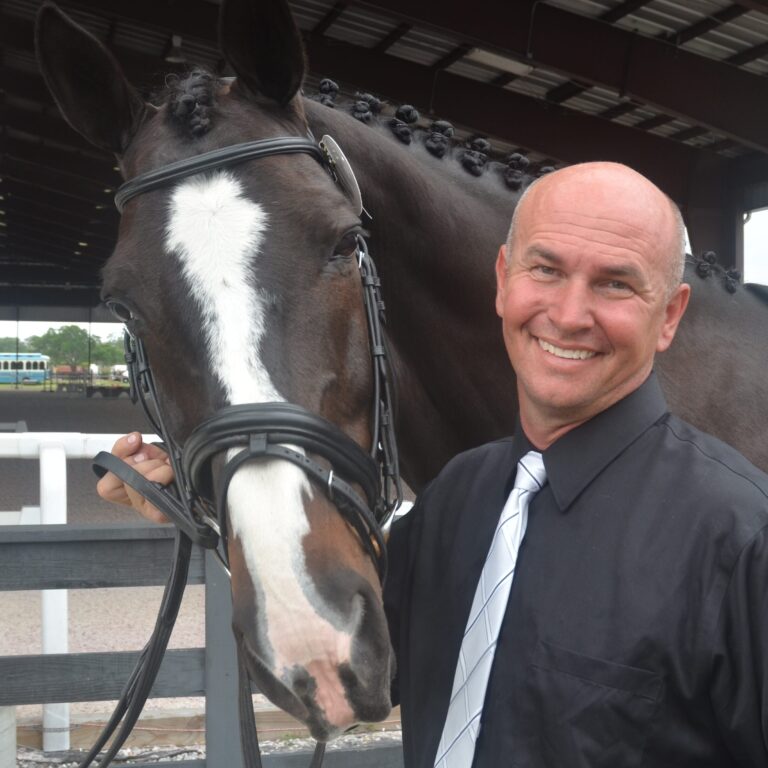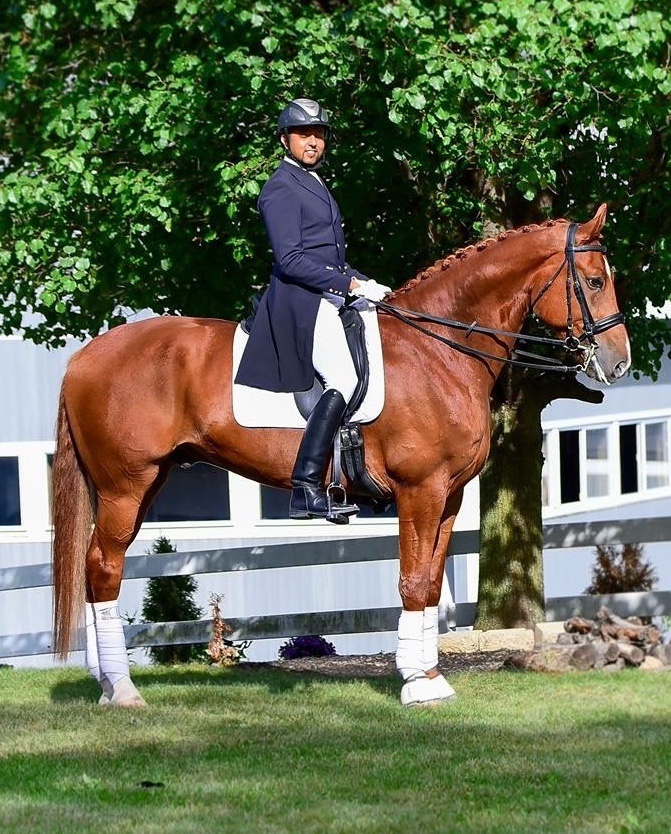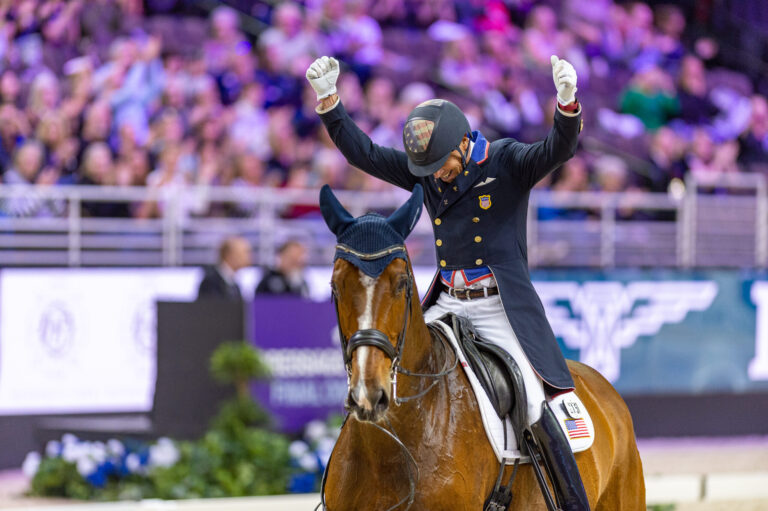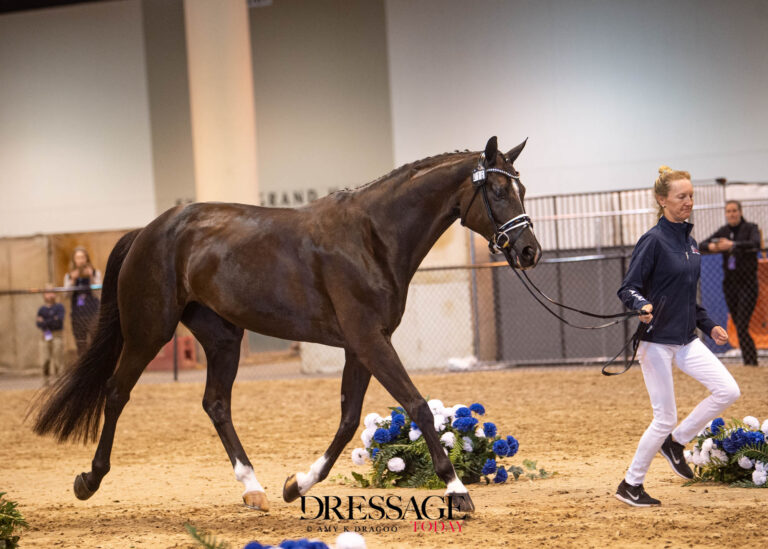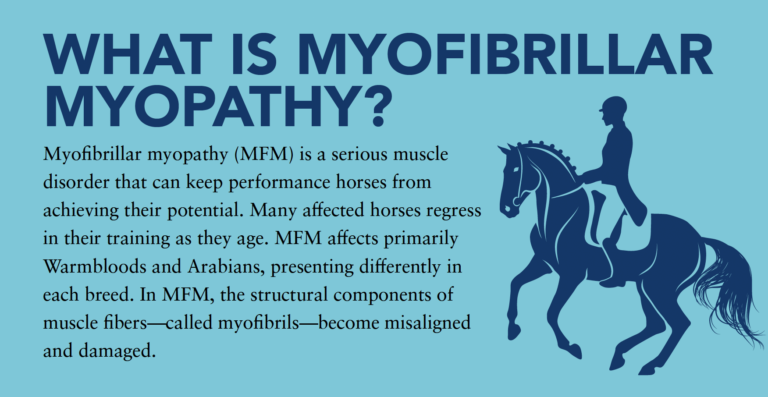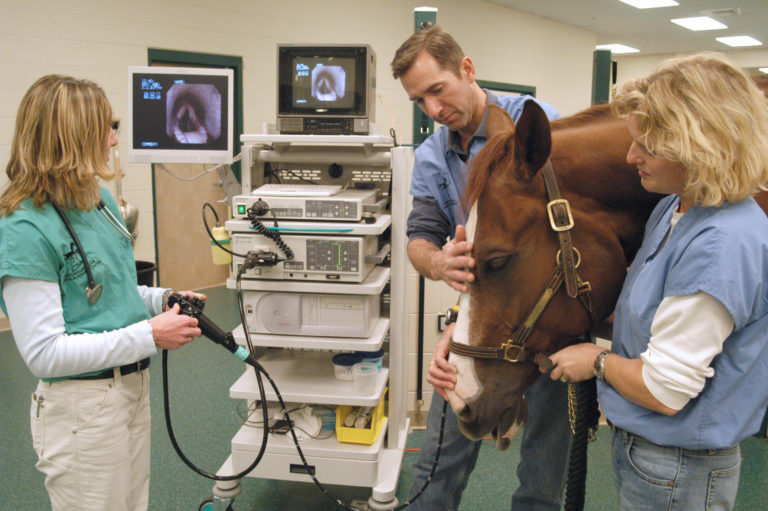We recently welcomed renowned dressage rider and trainer Jennifer Hoffmann to a clinic hosted at Equestrian Events, the Chicagoland stable I’ve called home for eight years. Coaching 10 horse-and-rider combinations from Training Level to Grand Prix, Jennifer packed in a weekend full of knowledge and exercises that we will happily apply to our future rides.
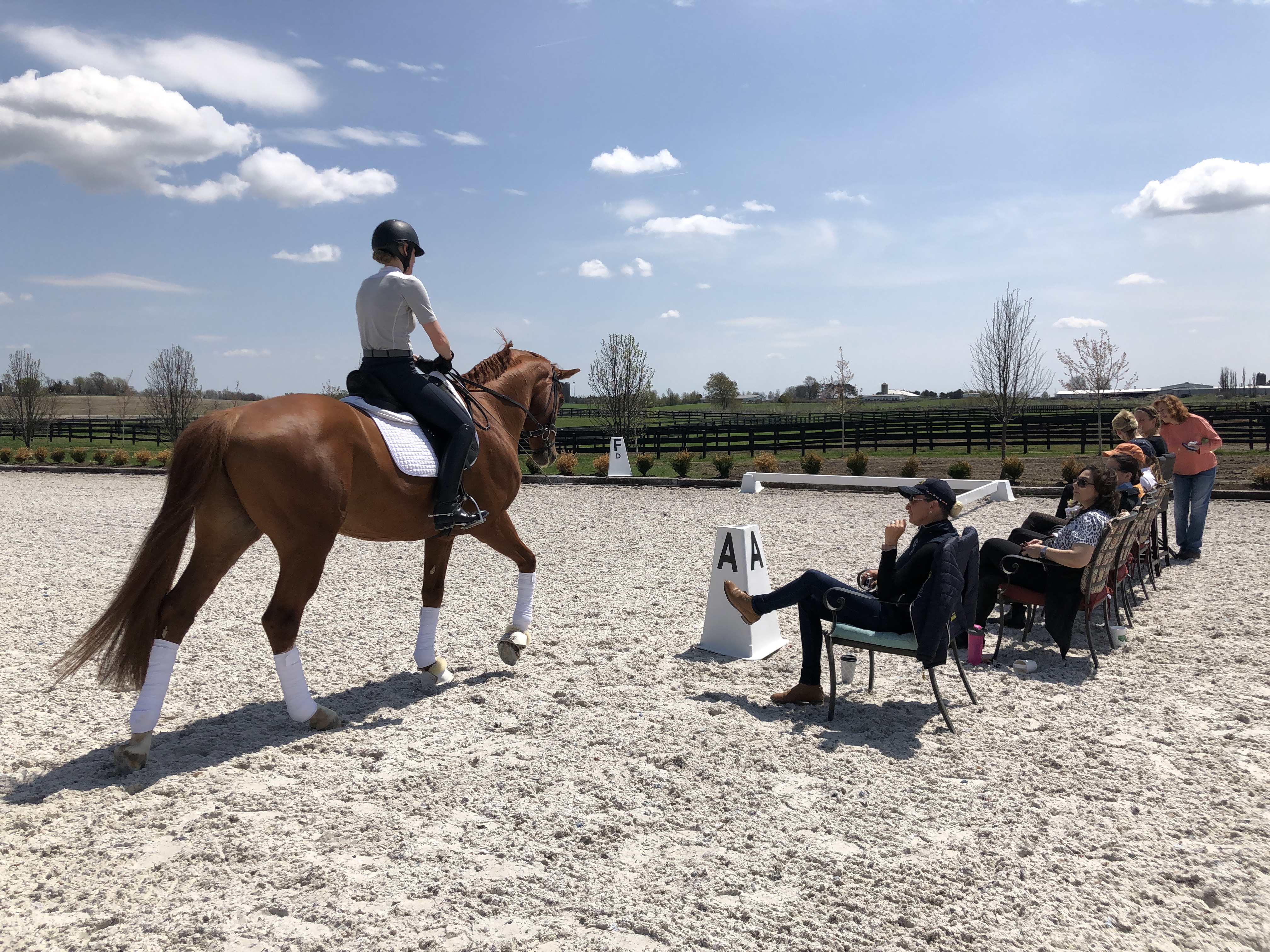
When I was offered an opportunity to ride with Jennifer, I was curious to know more about her, her training style and her equestrian accolades. After a quick Google search, I realized that she was no stranger to the dressage world—a prestigious rider in Europe with many distinguished awards who had just returned to the States.
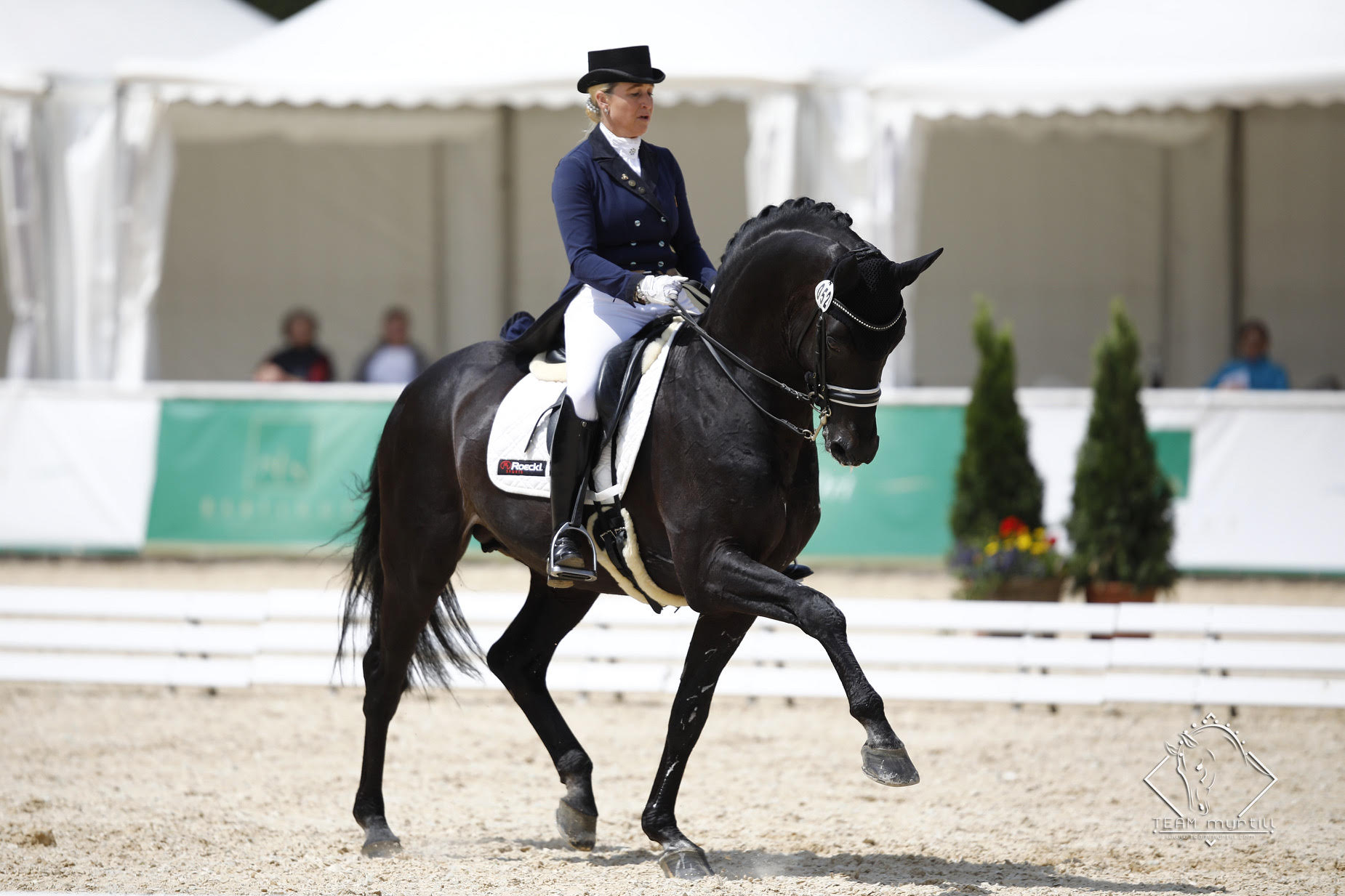
I rode, audited, dined with and interviewed Jennifer. I found that not only is she a wonderful and well-versed horsewoman, but she has spent time with some of the greatest dressage trainers of our time, including U.S. team coach Robert Dover, Klaus Balkenhol, Jean Bemelmans and Helen Langehanenberg, to name a few.
In three words, Jennifer describes her training as fair, passionate and consequent. She wants the horse to easily understand what is expected of him and she always praises him when he reacts positively. She states that the horse learns through correct repetition. “If you are not exact and thorough with your aids, how can you expect the same thing from your horse?” she asks. This simple statement was exactly what we focused on during my two rides.
My gelding, Rayne Dance, is an 8-year-old Holsteiner who lacks work ethic and sharpness. I purchased Rayne in 2016 when he was 4 years old and, when he was a young horse, I always rewarded him for his safe and easy-going attitude in any atmosphere. His sire is GP Raymeister, one of the most successful horses in USDF history. With big shoes to fill, we’ve been competing up the levels with FEI goals in site. Moving up the levels requires a certain energy and focus from the horse—and instilling the drive and motivation in my safe and easy-going gelding hasn’t been easy.
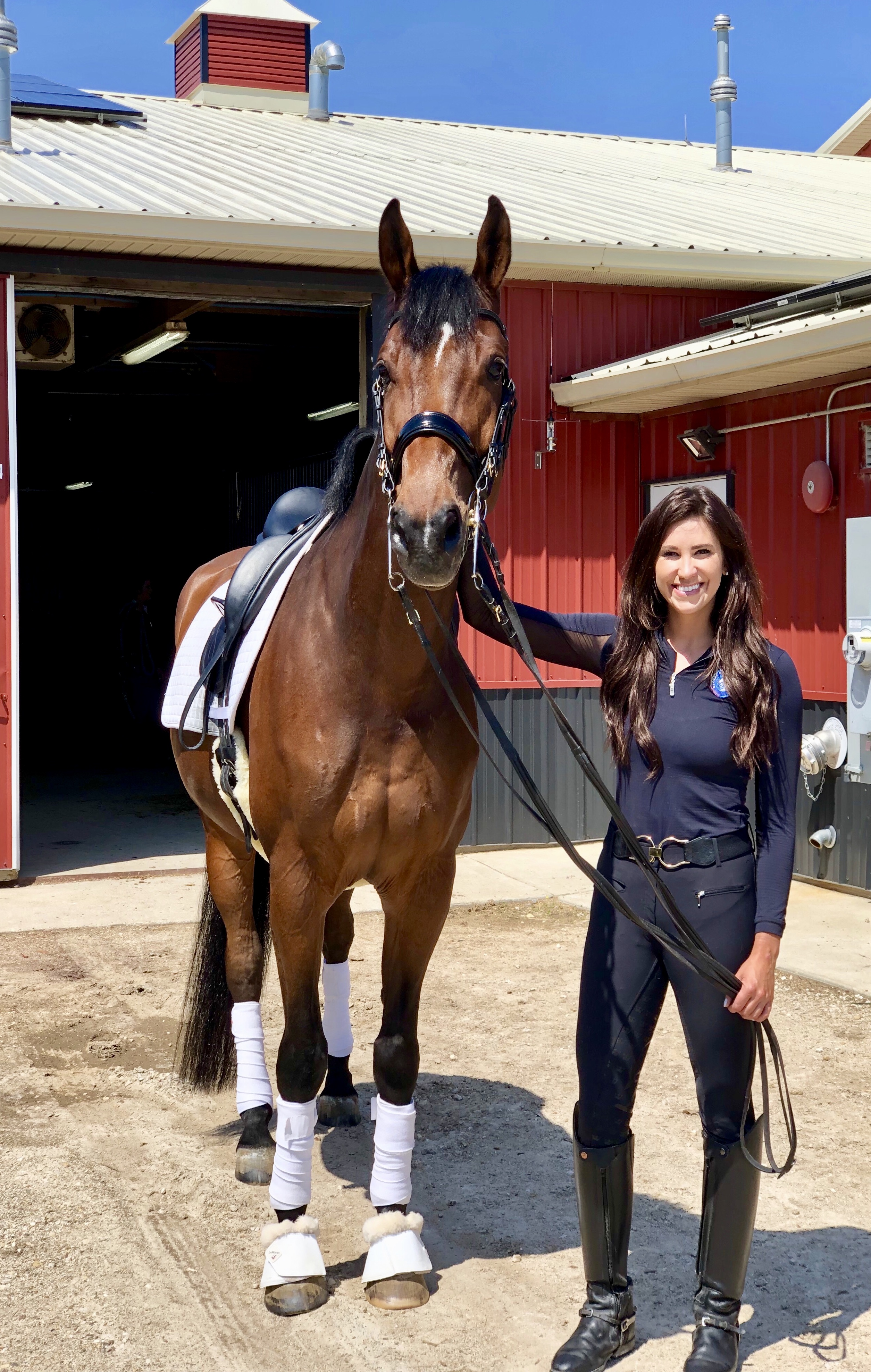
During our first ride of the weekend, I introduced Rayne and I and informed Jennifer that we had shown at Third Level in 2018, with room for much improvement. I knew bending and half passes were our weakness and, in the past, when I admitted this to other clinicians, it was all we worked on. I told Jennifer I wanted to focus on increasing sharpness and building up Rayne’s desire to move forward—and that is what we attempted to conquer!
A few key takeaways during our rides with Jennifer:
•Any reaction from a lazy horse is a positive reaction. The horse is telling you he is listening and you need to reward him with a good pat so it builds his confidence and he knows you’re pleased.
•Your shoulders and seat—not your hands—guide the horse. Think about moving the horse’s whole body. By overbending, you’ll lose the horse’s shoulder. In addition, a lazy horse will shut down when the rider overuses her hands.
•Corrections must be QUICK. If a horse breaks into the trot while you are cantering, react immediately. If you let him trot for a few strides and then correct him, he will have already forgotten about his break and his quickness will not improve.
•If the horse lacks sharpness in the saddle, have your trainer work from the ground with a whip. If the trainer taps his hind while the rider stays relaxed, does the horse move forward and seem willing? If so, this is positive. Eventually, the horse will associate the whip on the ground to the whip in-hand when riding with repetition.
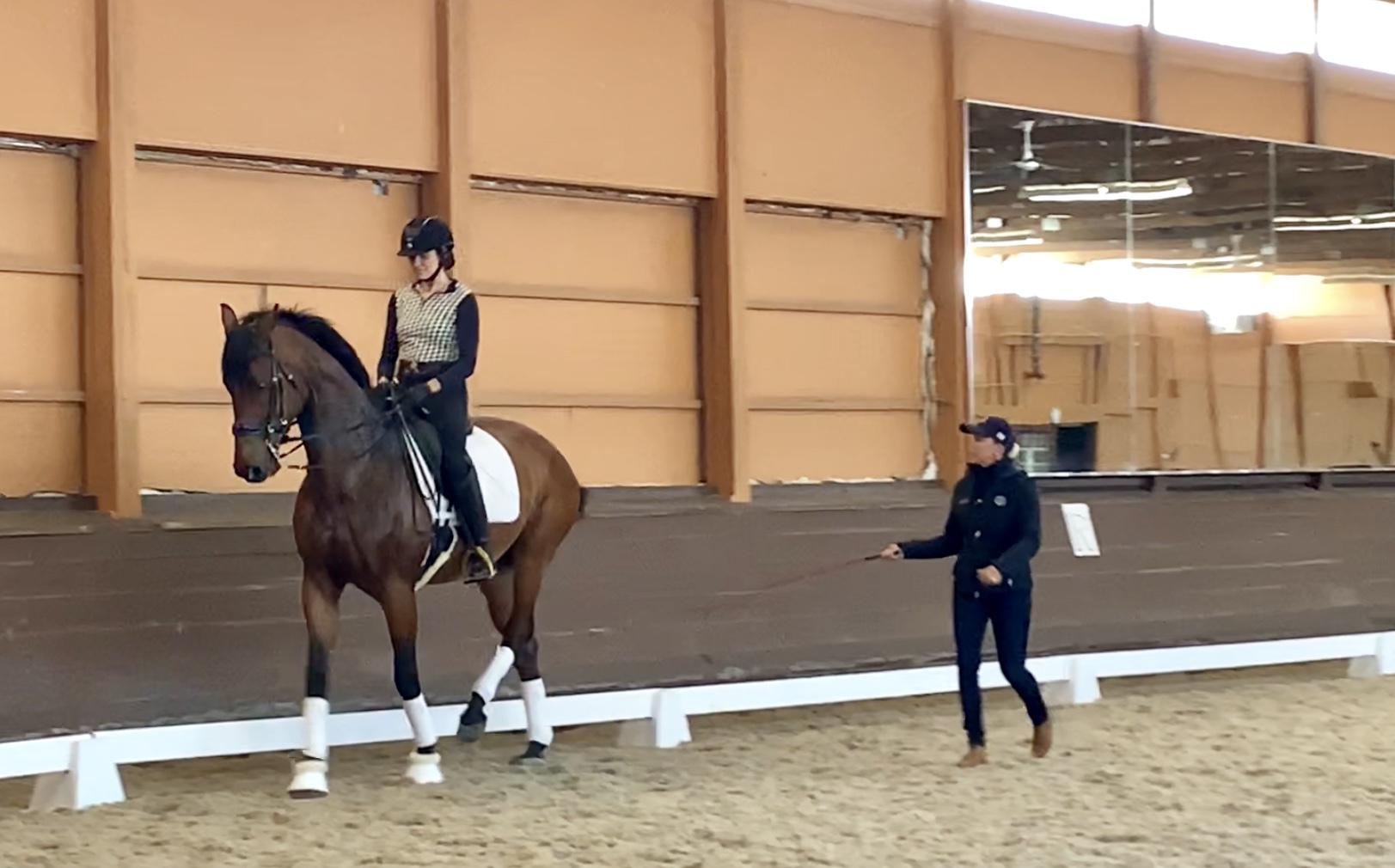
•Switch it up! Avoid shoulder-in on the entire long side or a half-pass across the entire ring if the horse has difficulty with these movements. You need to build up your horse’s confidence! Complete a few strides of the movement, reward and move on to the next. Keep the horse thinking and focused on the rider.
All of these takeaways helped me improve immensely as a rider in just two days. These small but powerful changes were apparent to the auditors and when Rayne would react correctly, you’d hear a small cheer from the spectators. Every horse and rider duo, regardless of what issue they were tackling, experienced “Ah-ha!” moments during each ride. An equestrian never stops learning—and this is what makes the sport fun.
Jennifer is extremely passionate about her riding, her horses and the sport overall. “I really want to make sure that I am always giving 100 percent,” she said. “I love this sport and there is not a day that goes by that I don’t think to myself what can I do to perfect the harmony in the arena? [Taking my horse through] the journey from a young 3-year-old to an International Grand Prix horse is the reason I live every day. It’s my oxygen.”
After riding in front of Jennifer for two days, her dedication and love for dressage is eminent. Her positive feedback and praise for the horse stands out above all. “I really love teaching clinics,” she said. “I love to help horses and riders achieve their goals and follow their dreams. We all have a journey and we’re all in it together.”
Jennifer plans to head down centerline at this year’s National Championships at Lamplight Equestrian Center, conveniently located just minutes away from Equestrian Events. There have already been rumblings of welcoming her back and as the rider list gets longer, we sure hope it happens.
“As a rider, we really never stop trying to be better in the saddle. Nobody is perfect,” Jennifer stated. That’s one statement all equestrians can get behind.
About Jennifer Hoffmann: Jennifer moved to Palos Verdes, California, when she was 6 years old. All her neighbors rode horses, so her parents bought a pony and her equine love affair began. As a child, Jennifer became familiar with all disciplines from Western to hunters but when she began eventing, it led her to dressage. At 16, she was offered a one-year working student opportunity in Germany. That one year led to residing in Europe for 22 years, where she’d work her way up the ranks and gain respect from the dressage world globally.
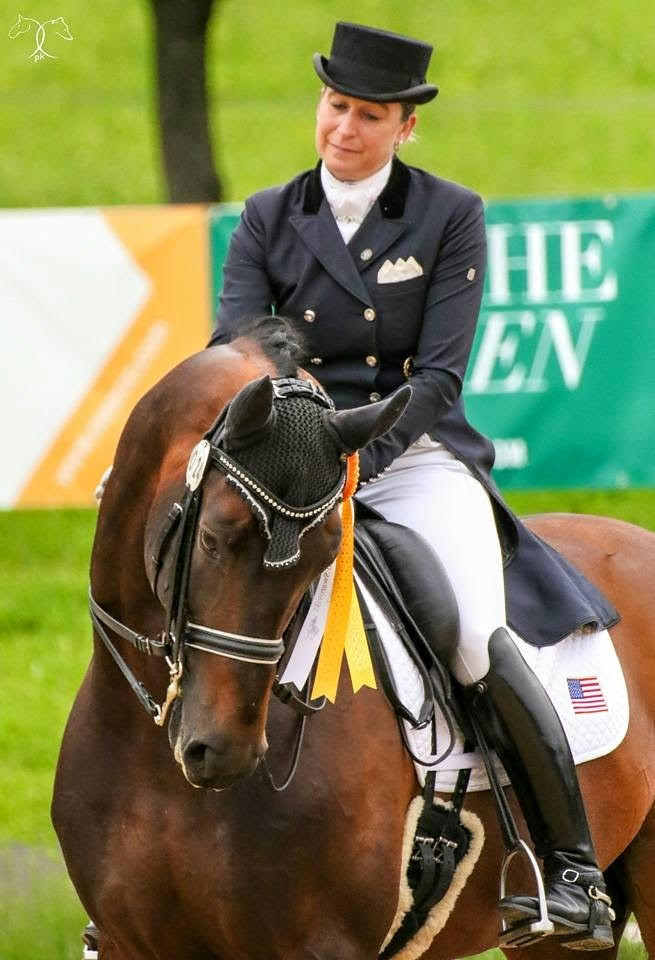
Germany is where she met her husband, Jürgen, and their training and sales business German Dressage began simply founded on the adage “German Tradition, American Pride.”
Germany was a special place for Jennifer. She wanted to learn all she could about classical dressage. She learned how to be competitive, the drive to succeed and gained understanding of the German people, the breeders, the trainers and the riders. She gained the respected title of Bereiter FN after years of studies and was proud of her hard work in a foreign country. As an American, she quickly realized it would be difficult to gain the respect of some of the very best dressage competitors but after medals and top placings at the Bundeschampionate, World Young Horse Championships, International CDIs and Grand Prix wins, she gained global recognition. The American girl began to find her way.
After years of European success, Jürgen and Jennifer Hoffmann’s business has recently found its way back to California. Their decision to once again establish themselves in the U.S. was based on family, but it hasn’t stopped Jennifer’s drive and determination within the sport.
Jennifer’s goals in the near future are not easily attainable but she is motivated and one to watch. In 2020, her sights are set on the 2020 Olympic Games with her 8-year-old stallion Rodoro Noblesse. He is a licensed stallion by Rosengold (Rohdiamant x Diamond Hit) x Latour (Landgraf). This year the pair finished with a 71-plus percent average and were prospects for the Pan American Games. “He’s a horse who is absolutely able to consistently score about 75 percent and we will aim for the National Championships in August. He’s a horse of a lifetime and many of us are certain his talent lies in the Grand Prix.” At the National Championships, she’ll also be aboard her 5-year-old stallion, Furst Florianus (Florentinus x Lord Loxley) who has won every 5-year-old class they’ve entered with scores in the mid 80’s. Her bond with Furst Florianus is extra special, as she rode his sire, Florentinus, as a 4-year-old and trained him up to Grand Prix.
Taryn Young is an advertising executive by day and an avid equestrian by nights and weekends. She is the founder of the equestrian lifestyle account @WarmbloodsandWine and resides in St. Charles, Illinois. She is a USDF bronze medalist who competes in recognized dressage shows with her gelding Rayne Dance and enjoys family, fitness and her corgi. She can be contacted at warmbloodsandwine@gmail.com or @WarmbloodsandWine on Instagram.


